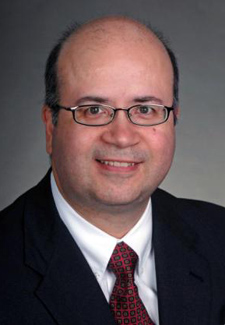 The Institute of Medicine (IOM) of the National Academy of Sciences has appointed Dr. Octavio N. Martinez, Jr., executive director of the Hogg Foundation for Mental Health, to a 21-member national consensus committee on the governance and financing of graduate medical education.
The Institute of Medicine (IOM) of the National Academy of Sciences has appointed Dr. Octavio N. Martinez, Jr., executive director of the Hogg Foundation for Mental Health, to a 21-member national consensus committee on the governance and financing of graduate medical education.
The IOM convened the committee in response to a call for an independent external review of how graduate medical education is financed. The committee will develop a consensus report with recommendations on how to transform graduate medical education in order to develop a new generation of physicians that can more efficiently and effectively meet the needs of the changing population.
Martinez previously served on the IOM’s consensus committee on the mental health workforce for geriatric populations. The consensus report was published in June 2012.
Martinez is executive director of the Hogg Foundation for Mental Health, associate vice president for the Division of Diversity and Community Engagement, and a clinical professor in the School of Social Work at The University of Texas at Austin. He is also an adjunct professor of psychiatry at The University of Texas Health Science Center at San Antonio.
Before leading the Hogg Foundation, Martinez was a clinical psychiatrist at the Albemarle Mental Health Center and an associate professor at the Brody School of Medicine in North Carolina. Prior to that, he was an assistant professor and psychiatrist at The University of Texas Health Science Center at San Antonio.
Martinez is a diplomate of the American Board of Psychiatry and Neurology and has a master’s degree in public health from Harvard University’s School of Public Health, a doctor’s degree in medicine from Baylor College of Medicine in Houston, and master’s and bachelor’s degrees in business administration with a concentration in finance from The University of Texas at Austin.
The first committee meeting occurred on September 4-5 in Washington, D.C. The committee will hold a public hearing at its next meeting on December 20-21.
The committee will:
- Review current regulation, financing, content, governance and organization of U.S. graduate medical education.
- Recommend how to modify graduate medical education to produce a physician workforce for a 21st century U.S. health care system that provides high quality preventive, acute and chronic care, and meets the needs of an aging and more diverse population.
